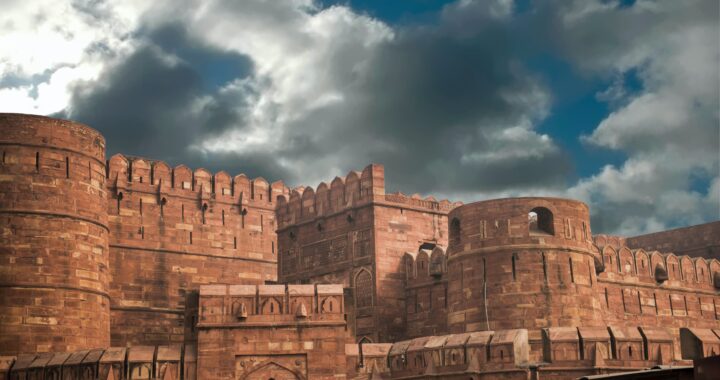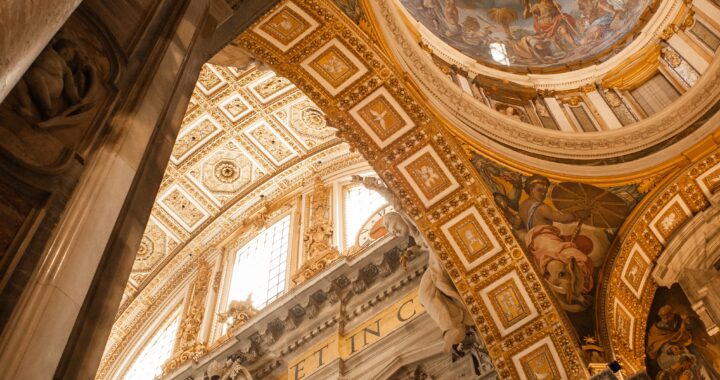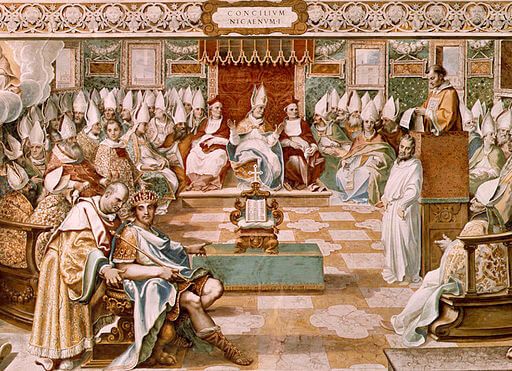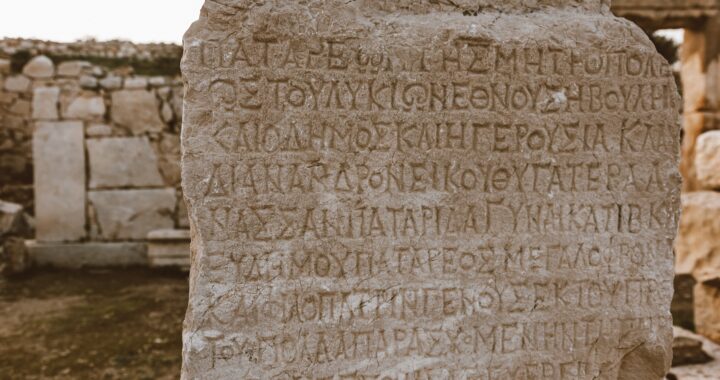The story of Theodora and Justinian is a hardly known story that reads like a wonderful fairy tale. They ruled the world as the greatest power couple in history at a time when civilization was falling apart. They held it together. As power couples go, no two were ever more powerful; President Kennedy and Jackie, or Prince William and Kate, cannot compare in the slightest. How about Henry and Eleanor (1200), Augustus and Livia (0), or William and Mary (1700)? Not even close. Theodora reigned over the Byzantine Empire from Constantinople as regent along side her husband from 527 until her death in 548. Yet, no two were ever a more unlikely power pair.
By the early 500’s the Roman Empire in the West was well on its way to collapsing into the Dark Ages. Rome’s population fell from 1,500,000 to maybe 30,000 and the grand Forum became an actual garbage dump. Unsavory barbarians demolished civilization in the West. But, Justinian and Belisarius (one of the greatest generals in history) conquered the Vandals in North Africa and booted the Ostrogoths out of Rome, Sicily, Italy, and Dalmatia along with establishing a presence in Spain. That, though, was not all. Two thousand miles to the east Belisarius subdued worse trouble closer to home along the Black Sea by stopping the Persians from toppling western civilization at the Battle of Dara.
Before leaving Belisarius, it is interesting to note his strange life. Born in Germania, he is considered “the last Roman.” As a youth he raised pigs but eventually moved up from the lowliest of military ranks with his better idea. His military success was due to the unique concept of using long range archers with short re-curved bows on war horses to soften up the enemy and then rush them on horseback with long spears. This heavy cavalry of the day is known as the Bucellari. When Rome was recaptured, Theodora told Belisarius, ‘as long as you are there, toss out that pope, Silverius.’ It’s rumored Silverius died of starvation. Belisarius felt bad about that and built a church. Back in Constantinople, his much older and debauched wife, Antonia, cuckolded this powerful general. Eventually, Belisarius was tried for fomenting an overthrow of Justinian, was imprisoned where he became a monk, but was later restored to the court. He is one of many colorful characters of the time.
Flavius Petrus Sabbatius (later Justinian I) was a most unlikely emperor who came from peasant folk who raised pigs. Justin, his uncle, had a similar background rising up through the military ranks to become emperor and took Justinian under his wing. Justinian had a very quick mind and was educated in philosophy, languages, administration, law, and most of all, theology. A gigantic accomplishment of his was to codify the mess of Roman laws into the Code of Justinian, upon which our present day laws are based. As if saving civilization was not enough, he built one of the world’s great churches, the Hagia Sophia. This all took coin, and lots of it. There was no financing, so piles of coin were needed for the wars, the church, and keeping the population intact. Justinian brilliantly expanded the Silk Road exchanging Italian glass for Chinese silk – until a few of the worms were smuggled out in hollow canes, but that is another story. He implemented a bribe free and efficient tax system and shook down the wealthy to pay their fair share, even if it meant torture. He reorganized the entire administration of the empire with a competent bribe free staff. In 536 he had to also deal with the Black Death plague that killed millions, a fifth of the population. The unrealized dream of Justinian was to reunite the East and West into a single Roman Empire. Lucky for western civilization he was a workaholic.
The Byzantine Empire, the eastern half of the Roman Empire, was an amalgam of church and state. There was no church without the state and no state without the church. It was Justinian’s obligation to know as much about theology as he had to know about statecraft. His version of Christianity came by way of the Fourth Council of Chalcedon in 451. The Chalcedonian Definition states, ‘Jesus is actually
God and actually man (the two natures definition) while reaffirming the First Council of Nicaea (325), the First Council of Constantinople (381), and the First Council of Ephesus (431) in that Jesus and the Holy Spirit are not created but are rather the eternal same substance as God; therefore, the consubstantiation of the Trinity.’ This is entirely in conflict with the Arian contention that Jesus was a created being, e.g., Docetism. Justinian was a devout Catholic believing in Chalcedon and the two natures of Jesus, and Theodora was a Monophysite believing in the one nature of Jesus.
Not only was Constantinople and the Byzantine Empire a church and a state, there was the unique and curious concept of “demes.” Before Justinian’s time there were four demes: the Reds, the Whites, the Blues, and the Greens. By the 520’s there were only the Blues and the Greens. A deme was a sports club, social group, political group, and the church all rolled into one. In today’s sense it is as though half the population cheers for the only the Green Bay Packers, belongs to only the Eagles club, is only Republican, and they are all strictly Baptists. The biggest sport by far was chariot racing, and this brought the Blues and Greens together in Constantinople’s 100,000 seat hippodrome. It proved to be less than prudent to crowd 50,000 rowdy Catholic/Democrat/Vikings/VFW fans in with 50,000 Baptist/Republican/Packer/Eagles fans. Justinian played the Blues off the Greens and the Greens off the Blues thereby keeping the heat off himself. It was at the chariot races that Justinian met Theodora.
It is difficult to comprehend Theodora came from an even lowlier circumstance than Justinian, especially in light of her becoming the most powerful leader on earth. Her father was a bear keeper in the hippodrome and her mother was a dancer/actress/prostitute. Theodora’s mother prostituted her at too young of an age to be effective. It was said even a slave could afford her. When Theodora was a little older, her mother introduced her to acting where she specialized in a bawdy performance of Leda and the Swan with the comic appeal of a mime. To be an actress often meant being a prostitute for after performance activities. At sixteen she left “acting” to become the mistress to a Libyan governor from Syria by capitalizing on her great beauty. She escaped from him 1,600 miles from home in Alexandria with the help of Monophysite monks. In her gratitude she asked how she could thank them. Their answer was to believe that Jesus had only a single purely divine nature, i.e., Monophysitism. Theodora learned the art of wool dying and made her way back to Constantinople.
At the chariot races, the highest and lowest of the population were crowded together. Movers and shakers would provoke their deme to riot in order to have their political agenda heard by the emperor. Justinian’s heralds would yell back the emperor’s reply to the crowd. Theodora was the most beautiful young woman in the land and caught Justinian’s eye at the races. To the disgust of the high echelon, Justinian carried on and lived with Theodora. By law he was not allowed to marry a prostitute, so just as soon as he became emperor, he changed the law, and they were married. Theodora was not just any prostitute, but one with an exceptionally keen mind. She learned to read and grasped philosophy, economics, administration, and theology. It was a perfect match except for the fact that Justinian was a Chalcedonian Catholic and Theodora was an Alexandrian Monophysite.
Theology was a most serious issue between the demes. The Chalcedonian faction believed Jesus has two natures in one being as Justinian’s believed. Theodora’s Monophysite belief is Jesus has one wholly divine nature. This theological pot boiled over in the second week of 532. Justinian’s fair tax reform so irritated some wealthy Blues that they switched demes to the Greens and lobbied for riots to take down the emperor. In 531 Justinian had enough of the Blues and Greens rioting to the point of murder. Low level riots could be chalked up to hooliganism, but enough was enough when it came to murder. Justinian made an example of the ring leaders by hanging seven of the Blues and Greens. One by one the trap doors opened and down they came – except for the last two a Blue and a Green. Their ropes broke, they landed on the ground gasping, and monks carried them away to sanctuary before
anyone realized what had happened. General Belisarius happened to be in town and had his personal troops surround the church to starve them out. The populous rebelled.
On January 13th of 532 a pent up crowd of Blues and Greens were at the races and hurled unified insults up at Justinian in his palace box attached to the hippodrome. By race twenty-two, both the Blues and Greens were shouting to Justinian “Nika” meaning to conquer, or win, or victory. The Blues and Greens were out of control and attacked the adjacent palace. For five days the palace was under attack, fires burnt much of the city, including the original Scanta Sophia, and hundreds died. Justinian sent his eunuch into the hippodrome with a bag of gold for the Blue section asking them to please leave peacefully reminding them Justinian was himself a Blue. Some Blues sulked out with their small bags of gold. Belisarius stormed in thru the Black Gate and General Mundus stormed the Nekra Gate and more than 30,000 Blues and Greens were systematically slaughtered by 3,000 heavily armed troops.
During the riots many suggested the court flee Constantinople. It was only Theodora that took a stand with her impassioned speech. She refused to run and become a fugitive. “May I never be deprived of this purple robe, and may I never see the day when those who meet me do not call me empress. … royal purple is the noblest shroud.” She held the empire together by shaming the court into staying put, the rioting stopped, and Justinian was never questioned again.
So what went wrong in Constantinople? Sure there were more taxes, but the majority of the population was probably very pleased the wealthy had to now pay their fair share. What really lit a fire under the citizens was this two natures or one nature of Jesus thing. The man on the street certainly did not understand it. Yet, Blues and Greens vehemently shouted at one another, “Our Jesus is One God,” “Mary is Theotokos,” “We will not divide God,” and “Christ is God.” (And, many clergy did not care to understand the homoousios or homoiousios aspect of the Trinity in relation to ek duo physeon or en duo physeon nature(s) of the hypostatic union and prosopon.) Over the centuries people became pretty excited about their religion to the point of clergy and kings burning people at the stake. But, was there ever a time when people went wild over the little “i” in homo(i)ousios or on not?
The Nika Riots were a different animal. Constantinople had an entire population divided by their convictions, even though they did not understand them. On the one hand, it was ever so far from the common sense teachings of Jesus in the Gospels. In another theological sense, it was ever so far from the Bible as a whole. C’mon, when did Jesus ever speak of ek duo physeon? It is absurd to think Jesus would choose sides to the point of rioting, or to think Jesus would ever define Himself – but man did.
Theodora the Monophysite, and Justinian the Chalcedonian inadvertently allowed religion to run amok. Religion aligned the Blue and Green demes one way or another taking them down a path to inevitable conflict. Theodora believed in a theological construct of Jesus that is simply not Biblical. Justinian believed in his non-Biblical creed that existed only because it won the day through bribery, coercion, torture, and murder. These two man-made corrupt versions of the Gospel permeated society to the point of lighting the fuse that literally blew up one of the most powerful cities in the world.
The story of Theodora and Justinian is fascinating and complex. It is the stuff fairy tales are made of. The little guy and little girl from horrid backgrounds find love and grow to rule the world. It’s a great fairy tale like story, but their theological baggage blew up that world. Religion ran amok.
The moral of this fairy tale is read the Gospels plainly without the weird and corrupting influence of theology that only runs religion amok.
Copyright 2021 by Greg Hallback



